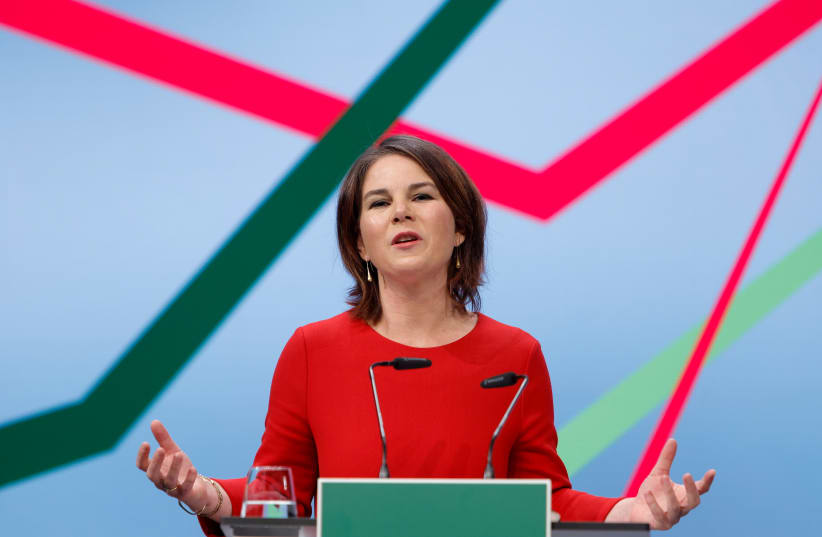The German Foreign Ministry is to be taken over by Green Party leader Annalena Baerbock, the Green Party confirmed on Thursday. She will be first woman to hold this post. Baerbock ran for chancellor alongside Olaf Scholz and conservative Armin Laschet in the 2021 federal election.
Germany's future government has presented its coalition agreement. The coalition partners, consisting of the Social Democrats (SPD), the Liberals (FDP), and the Greens (Grüne), announced on Wednesday who will take on which functions within Germany's future government.
The future chancellor of Germany will most likely be the Social Democrat Olaf Scholz. However, he still has to be elected in December. Scholz served as vice-chancellor and finance minister under Angela Merkel during the last legislative period. The German Foreign Ministry is to be taken over by Green Party leader Annalena Baerbock, the Green Party confirmed on Thursday. She will be first woman to hold this post. Baerbock ran for chancellor alongside Olaf Scholz and conservative Armin Laschet in the 2021 federal election.
Baerbock clearly spoke out in the past in favor of security cooperation with Israel.
"For me, Israel's security and right to exist are part of the German reason of state," she said in an interview with the Tacheles Arena discussion format of the Central Council of Jews in Germany in August 2021. "We reject a boycott of Israel as Europeans, Germans, and Greens. Clearly and unequivocally. There are no ifs and buts about it. If you say that Israel is boycotted across the board, then this stance is antisemitic."
In the wake of the escalation in May, Baerbock stressed the need to exert more pressure from Berlin on those with influence within Hamas.
"Especially in these difficult times, that means intensive telephone diplomacy and the deployment of special emissaries," the future foreign minister said in May. Israel has a "right to self-defense guaranteed by international law."
In 2018, however, Baerbock campaigned against arms exports for Israel. In an interview with YouTuber Thilo Jung, she stressed that "no submarines should be delivered to crisis regions that can then be refitted." This statement suggests that under a government with the Greens, no more arms exports will be sent to Israel. Her testimony was met with criticism. "Solidarity with Israel looks different," wrote CSU defense expert Florian Hahn on Twitter.
After the Hamas rocket attacks in May 2021, Baerbock rowed back. She told the German newspaper Bild: "Should the Greens be part of the next German government, they will discuss and continue security cooperation with the state of Israel in partnership." The conflict between Israelis and Palestinians could only be settled by a "resilient peace solution."
As a future foreign minister, Baerbock must dispel the suspicion that she is naïve in foreign policy. So far, she has tried to do this by trying to fit in with the state in the places where she is least likely to cause trouble.
According to the coalition's plans, German arms exports are to be better controlled in future with their own law. So far, there are only political guidelines for the export of arms and other military equipment. Among other things, they prohibit the export of weapons to crisis regions. Whether Israel will be defined as such a crisis area by this law remains to be seen.

